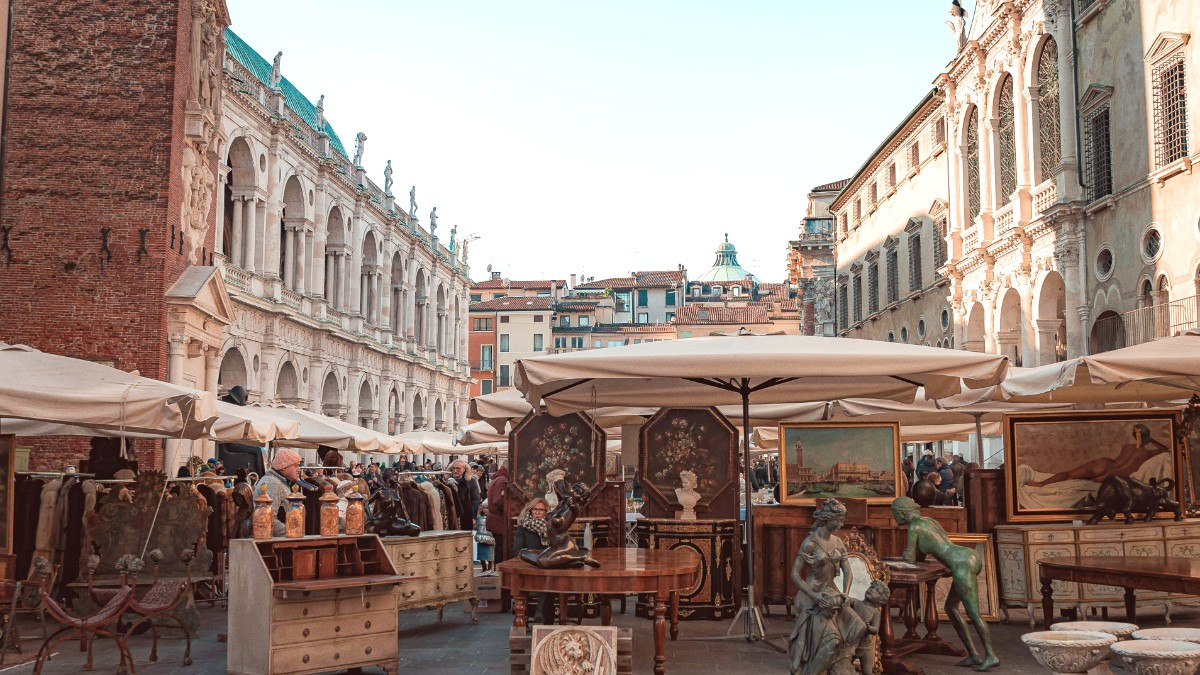
The Veneto, Italy
Spring (April-May): Temperatures are mild, ranging from 10-22°C (50-72°F). You experience comfortable humidity. Precipitation is moderate, with occasional showers. Spring brings blooming flowers and green landscapes. This makes walking and outdoor activities pleasant.
Vicenza's tourist seasons vary, influencing crowds and prices.
Summer (June-August) sees highest temperatures, humidity, and crowds. Shoulder seasons (April-May, September-October) offer pleasant weather and fewer crowds. Winter (November-March) has the fewest crowds and lowest prices, but cold temperatures and shorter daylight.
Italy is part of the Schengen Area. This influences entry requirements for many nationalities. Citizens of many countries, including the USA, Canada, Australia, and the UK, can enter Italy for tourism for up to 90 days within any 180-day period without a visa. The ETIAS system is expected by mid-2025; non-EU citizens not needing a Schengen visa will apply online before travel. Citizens of countries not part of the visa-waiver program must apply for a Schengen visa at the Italian embassy or consulate.
Your passport must be valid for at least three months beyond your planned departure from the Schengen Area. It must be issued within the last 10 years and have at least two blank pages. Airlines may ask for proof of onward or return travel. Immigration officials may request proof of sufficient funds for your stay and accommodation bookings. Travel insurance is strongly recommended and sometimes necessary for visa applicants.
No general entry fees for tourists visiting Italy.
Present passport to border control upon arrival at your first Schengen port of entry.
No special permits generally for standard tourism activities.
Italy currently has no specific health-related entry requirements, beyond general health guidelines.
Keep your country's embassy or consulate contact information readily available.
Understand Italy's currency and how to manage your money. Plan your budget based on your travel style. Daily costs vary significantly.
The Euro (€, EUR) is the currency used in Italy. ATMs, called "Bancomat," are widely available throughout Vicenza. Most hotels, restaurants, and larger shops accept major credit cards like Visa and Mastercard. Carry some cash for smaller purchases, local markets, or very small establishments. Currency exchange offices are less common and often offer less favorable rates.
Tipping culture in Italy differs. A "coperto" (cover charge, usually €1-€3 per person) or "servizio" (service charge, often 10-15%) may be included. If a service charge is on your bill, no further tip is expected. If it is not included, rounding up the bill or leaving a few Euros (5-10%) for good service is a kind gesture but not mandatory. No tip is expected for counter service at cafes/bars. For table service, rounding up to the nearest Euro is common. For taxis, round up to the nearest Euro or few Euros. Porters: €1-€2 per bag. Housekeeping: small tip at stay end. Tour Guides: €5-€10 per person for a good tour.
Utilize local markets for fresh produce and picnic lunches. Drink tap water; it is safe. Walk extensively, especially in the compact city center. Buy a combined ticket for civic museums if visiting multiple places (e.g., Teatro Olimpico, Palazzo Chiericati). Eat "pizza al taglio" (pizza by the slice) or enjoy a panino for a budget-friendly lunch. Take regional trains (Regionale) instead of high-speed trains for travel between cities.
Good health and safety practices contribute to a pleasant journey in Vicenza.
No specific vaccinations are necessary for entry into Italy from the US or Europe. Healthcare professionals suggest routine vaccinations (MMR, DTaP, Varicella, Polio, annual Flu shot). Consult a healthcare provider before your trip for personalized advice.
Ospedale San Bortolo serves as the main public hospital. Pharmacies (Farmacia) are easily identified by a green cross. Dial 112 for all emergencies (police, ambulance, fire).
Vicenza is generally a safe city for tourists. Petty crime, like pickpocketing, can occur in crowded tourist areas, on public transport, or around train stations. Remain aware of your surroundings.
The Veneto region, including Vicenza, can experience flooding during heavy rain. Italy is a seismically active country, but major earthquakes in the Vicenza area are rare.
Obtain comprehensive travel insurance. This covers medical emergencies, trip cancellation or interruption, lost luggage, and other unforeseen events.